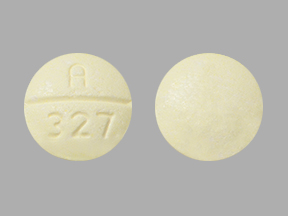
Phendimetrazine Coupons & Savings Card – Discount Prices from $12.94
Phendimetrazine is a prescription medication used to aid in weight loss for adults as part of a doctor-approved plan that includes exercise, behavior changes, and a reduced-calorie diet. It is specifically intended for individuals who are obese or have weight-related health issues such as heart disease, diabetes, or high blood pressure. By helping with weight reduction and maintenance, Phendimetrazine can decrease the health risks associated with obesity.
This medication functions as an appetite suppressant and belongs to a class of drugs known as sympathomimetic amines. Although the precise mechanism is not fully understood, it is believed to reduce appetite by acting on the brain areas that control hunger. Phendimetrazine is available as an immediate-release tablet taken two to three times daily, or as an extended-release capsule taken once daily. Some common side effects include restlessness, headache, and elevated blood pressure. It is important to consult a healthcare professional before starting Phendimetrazine to ensure it is safe and appropriate for your personal health needs.
Our coupons are free to use. Before paying, show the pharmacist your Phendimetrazine savings card to get your free discount. Use our filters below to edit the prescription box to match your needs. The Phendimetrazine prices will update based on your prescription needs. Above our Phendimetrazine coupons, you can change your location to see pharmacy prices and costs in other areas. We're here to help you buy Phendimetrazine at the lowest price with our prescription discount card.
My prescription
Edit
35MG, Phendimetrazine (90 Tablets)
Select pharmacy

CVS
$25.05
COUPON PRICE
Walgreens
$12.94
COUPON PRICE
Walmart
$17.35
COUPON PRICE
Albertsons
$19.47
COUPON PRICEPhendimetrazine savings card
Show this card to your pharmacist
Walgreens
$12.94
BIN
ID
PCN
GRP
015995
LHKPY243701
GDC
DR33
Powered by
Phendimetrazine is a prescription medication used to aid in weight loss for adults as part of a doctor-approved plan that includes exercise, behavior changes, and a reduced-calorie diet. It is specifically intended for individuals who are obese or have weight-related health issues such as heart disease, diabetes, or high blood pressure. By helping with weight reduction and maintenance, Phendimetrazine can decrease the health risks associated with obesity.
This medication functions as an appetite suppressant and belongs to a class of drugs known as sympathomimetic amines. Although the precise mechanism is not fully understood, it is believed to reduce appetite by acting on the brain areas that control hunger. Phendimetrazine is available as an immediate-release tablet taken two to three times daily, or as an extended-release capsule taken once daily. Some common side effects include restlessness, headache, and elevated blood pressure. It is important to consult a healthcare professional before starting Phendimetrazine to ensure it is safe and appropriate for your personal health needs.
Our coupons are free to use. Before paying, show the pharmacist your Phendimetrazine savings card to get your free discount. Use our filters below to edit the prescription box to match your needs. The Phendimetrazine prices will update based on your prescription needs. Above our Phendimetrazine coupons, you can change your location to see pharmacy prices and costs in other areas. We're here to help you buy Phendimetrazine at the lowest price with our prescription discount card.
More prescriptions for weight loss
coupons from$28.19Save 51%
coupons from$37.84Save 51%
coupons from$27.69Save 89%
coupons from$484.20Save 30%
coupons from$37.84Save 51%
coupons from$631.59Save 20%
coupons from$484.20Save 30%
coupons from$154.40Save 79%
More prescriptions for weight loss
Diethylpropion Save 51%coupons from $28.19
Amphetamine Sulfate Save 51%coupons from $37.84
Lomaira Save 89%coupons from $27.69
Adzenys Xr-odt Save 30%coupons from $484.20
Evekeo Save 51%coupons from $37.84
Xenical Save 20%coupons from $631.59
Amphetamine ER Save 30%coupons from $484.20
Saxenda Save 79%coupons from $154.40
Phendimetrazine dosage forms
Use our Phendimetrazine 35MG coupon with prices from $17.35 for 90 Tablets. You can also use our Phendimetrazine 35MG coupon with prices from $3.66 for 7 Tablets. We have a Phendimetrazine 35MG coupon with prices from $4.81 for 14 Tablets. You can use our Phendimetrazine 35MG coupon with prices from $4.98 for 15 Tablets.
Dosage Quantity Price from Per unit 35MG 90 Tablets $17.35 $0.19 35MG 7 Tablets $3.66 $0.52 35MG 14 Tablets $4.81 $0.34 35MG 15 Tablets $4.98 $0.33 35MG 21 Tablets $5.97 $0.28 35MG 28 Tablets $7.12 $0.25 35MG 30 Tablets $7.45 $0.25 35MG 35 Tablets $8.28 $0.24 35MG 42 Tablets $9.43 $0.23 35MG 45 Tablets $9.93 $0.22
| Dosage | Quantity | Price from | Per unit |
|---|---|---|---|
| 35MG | 90 Tablets | $17.35 | $0.19 |
| 35MG | 7 Tablets | $3.66 | $0.52 |
| 35MG | 14 Tablets | $4.81 | $0.34 |
| 35MG | 15 Tablets | $4.98 | $0.33 |
| 35MG | 21 Tablets | $5.97 | $0.28 |
| 35MG | 28 Tablets | $7.12 | $0.25 |
| 35MG | 30 Tablets | $7.45 | $0.25 |
| 35MG | 35 Tablets | $8.28 | $0.24 |
| 35MG | 42 Tablets | $9.43 | $0.23 |
| 35MG | 45 Tablets | $9.93 | $0.22 |
| 35MG | 56 Tablets | $11.74 | $0.21 |
| 35MG | 60 Tablets | $12.40 | $0.21 |
| 35MG | 84 Tablets | $16.36 | $0.20 |
| 35MG | 100 Tablets | $19.00 | $0.19 |
| 35MG | 112 Tablets | $20.98 | $0.19 |
| 35MG | 120 Tablets | $22.30 | $0.19 |
| 35MG | 135 Tablets | $25.61 | $0.19 |
| 35MG | 140 Tablets | $26.22 | $0.19 |
| 35MG | 180 Tablets | $37.52 | $0.21 |
| 35MG | 240 Tablets | $44.30 | $0.18 |
| 35MG | 360 Tablets | $53.30 | $0.15 |
| 35MG | 1000 Tablets | $101.30 | $0.10 |
